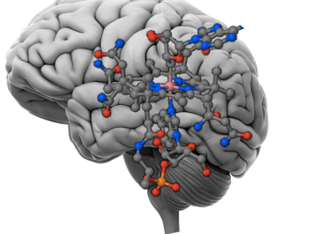
Health
Vitamins for Brain Health
Vitamins are an important part of the brain's toolkit. What do they do?
Posted January 31, 2019

We all know that we need vitamins, but we probably worry about them in the context of our immune system and skin quality and eyesight and bone health. No one ever tells you to eat your vitamins for your brain. Yet it might just be the most important reason that you should.
Vitamins are part of the brain’s construction toolkit
Building the brain with its miles of axons and billions of constantly evolving connections is a substantial construction project. Just as trucks and drills are crucial to laying highways and building bridges, a host of molecular machinery are crucial for construction of neuronal highways and synapses. In some cases, removing or tampering with a particular tool completely stops the growth of life itself. And sometimes alternatives kick in. In the end, however, the better the tools, the better the system can be built. Many of the heavy lifting functions in cells are carried out by proteins. But some are carried out by vitamins. Even though proteins are encoded in the genome, humans are only able to synthesize 11 of the 20 amino acids required to build them (unlike many plants and bacteria that can synthesize all 20). The rest have to be ingested. As for vitamins, our cells can’t synthesize them at all, and they must all be mined from our blood streams and come only from diet. What you eat, therefore, matters for the construction and function of your brain.
So what are some of the vitamins that matter and what do they do?
Vitamin B12 for faster and better cognition
Arguably the most important activity in the brain has to do with electrical signaling between neurons. Axons are the wires on which these signals are transmitted. Even a slight vitamin B12 deficiency results in poorer quality of myelination, which is the insulation axons required to propagate these signals effectively. When myelination is poor, signal quality is poor.
Even a slight deficiency of B12 has been found to lead to fatigue, fogginess and depression. Chronic deficiency can cause dementia and permanent damage to the brain. Symptoms of dementia include trouble with recalling recent events or recognizing people and places, finding the right words, solving problems, planning and carrying out simple tasks, exercising judgment, and controlling moods and behavior. Basically, it means functioning at a substandard level across virtually every dimension. B12 is incredibly important for brain health, but it isn’t the only important vitamin.
Vitamin A for better spatial memory
Vitamin A is not as well understood but there are some clues. Researchers at the Nutrition & Neurosciences laboratory at the University of Bordeaux in France recently studied the impact of Vitamin A deprivation and subsequent reintroduction in rats. They found that deprived rats had 32% fewer new cells in the hippocampus compared to rats fed a diet containing adequate amounts of Vitamin A.
The deprived rats also did a lot worse in a spatial memory task where they had to learn to swim around a tank marked with cues to find a hidden platform. The deprived rats took several days of being thrown in the water maze to start getting better at finding the platform, while the rats with regular levels of Vitamin A started to get better at the task even in a day. And although the Vitamin A deficient rats began to eventually learn and improve, they never got as good. On average they swam around longer, covering 25% more distance before they got to the platform.
The kicker of course, was that when Vitamin A was added back in their diets for 4 weeks, these rats significantly stepped up their performance on the water maze task and began making new neurons at the same rate as the control rats, perhaps even overcompensating by making more.
Vitamin C for spatial memory and regeneration
Similar experiments with Vitamin C were conducted in 2009 by researchers in the Department of Medicine at Vanderbilt University. They found that with just one dose of Vitamin C, middle-aged mice improved approximately 15% in the efficiency with which they located the platform. Though these results weren’t nearly as dramatic as the prolonged Vitamin A treatment, it is remarkable that a statistically significant effect can appear in just one treatment. Like Vitamin A, Vitamin C is also thought to have some role in the production of new neurons and in their growth.
Of course, a lot of this research has been done in rats and not yet in humans, but presumably this will be true of all mammalian brains. Much is still unknown about the different ways our vitamins, or even our diet in general, impact brain health. Yet if our understanding of vitamins B12, A, and C are any indication, vitamins are essential, and what you eat matters for the outcomes our brains produce—maybe a lot more than we have realized.

